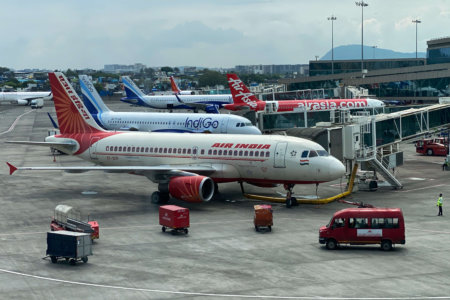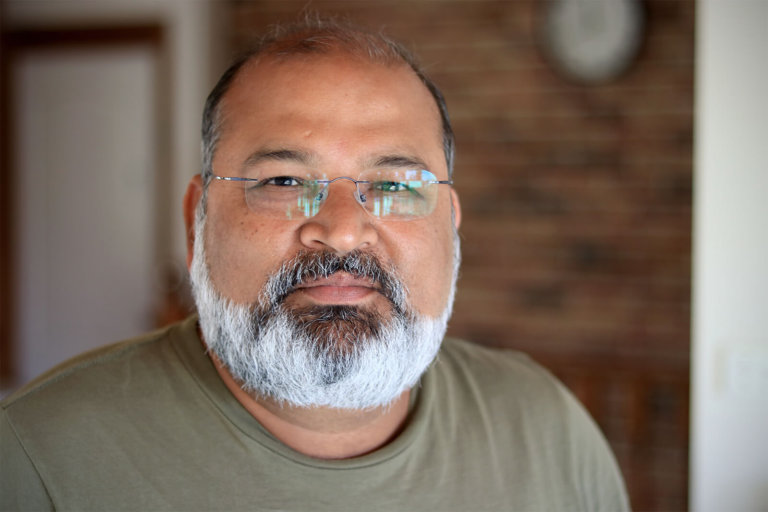
They say good things are born out of bad situations — this is true for the Asian International Students of Australia (AISA). The incorporated not-for-profit association in New South Wales (NSW), has been actively helping international students of Asian origin with free food, support and more to deal with the challenges wrought by the COVID-19 outbreak.
AISA offers guidance on food, migration, jobs and health. AISA’s strength lies in how they’re able to connect with Asian international students in Australia, using their collective power to help them solve common problems.
Money isn’t the only thing they raised; but morale — and even bicycles.
“We invite students to cook in our homes, give away bicycles and have a vegetable garden,” says Navneet Mittal, Vice President of AISA.
Their work has been instrumental to international students in Australia. We caught up with Mittal to learn more about AISA, how he arrived in Australia and the type of help students can get from his organisation:
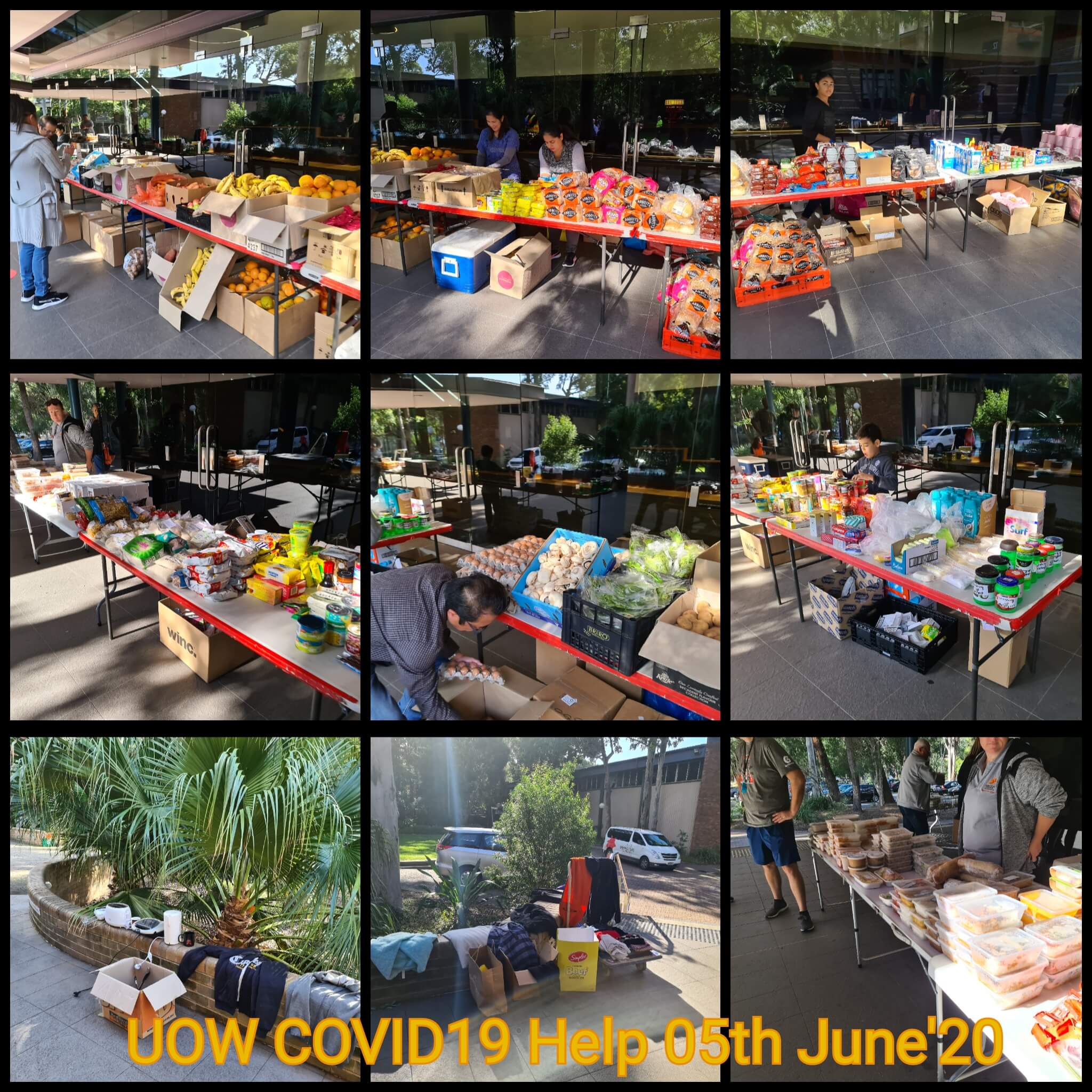
“We also booked out the big hall at the University of Wollongong to supply groceries to students in need,” he tells Study International. Source: Navneet Mittal
Tell us more about yourself, your journey to Australia and how AISA began.
My colleague, the president of AISA began as an international student in Australia but I arrived as a skilled migrant from India. However, AISA started around April last year in Wollongong.
This came from the strict COVID-19 lockdowns where students lost their jobs and everything. We began as a community helping these students by providing them with anything — from food to household items.
During this journey, we continued to provide free groceries, extra money and so on until January this year. We also booked out the big hall at the University of Wollongong to supply groceries to students in need.
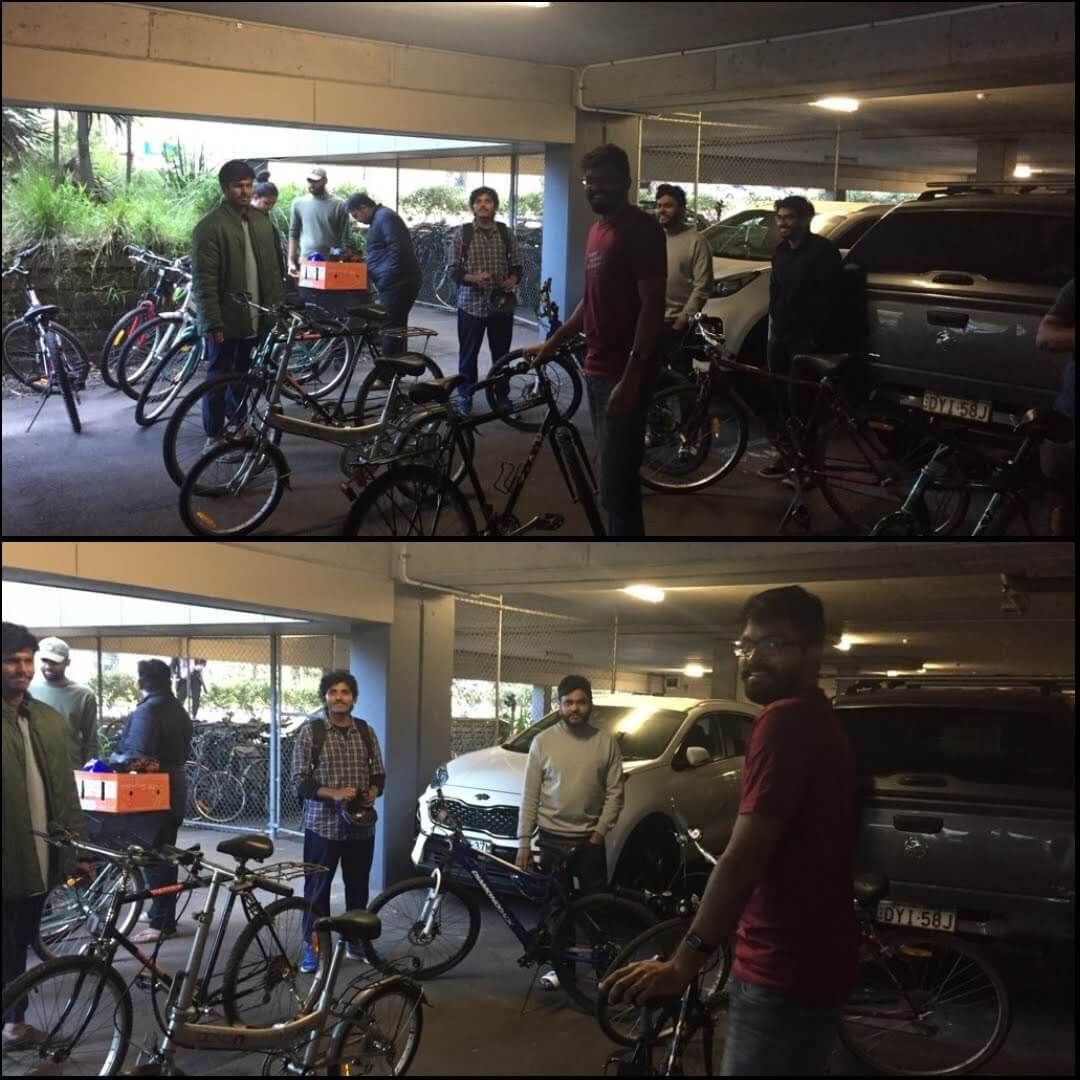
AISA also organised bicycle giveaways to students. Source: Navneet Mittal
This good gesture made us realise we need to continue this work. Also, during that time, I managed to build a huge database of students which has been very helpful as we’re one of the very few grassroots organisations.
What exactly does AISA do for international students in Australia?
Today, we help more than 1,200 international students in Australia. I’m also chatting to the ones who are stranded outside the country that come from countries like Pakistan and Bangladesh.
This is why we’ve had to create WhatsApp groups because, as you can imagine, millions of questions are asked every day. Currently, there are three different WhatsApp groups (since you can only have 250 participants in one) with updated information on all the cities in NSW.
We get asked every day about what’s going on with the Australian government. The students also share their struggles finding accommodation as it’s peak time and borders are reopening.
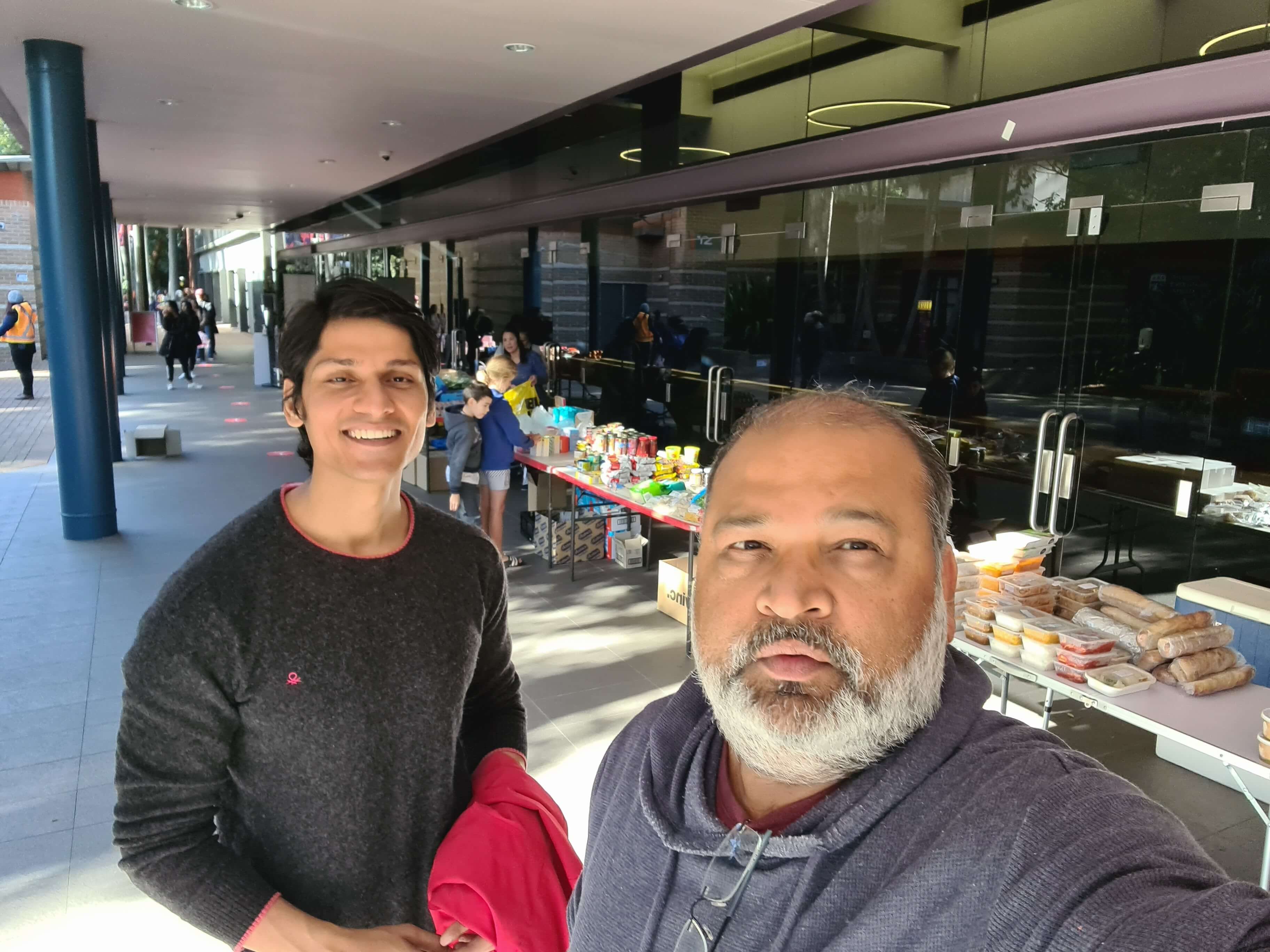
AISA offer students various help and provision, from food to household item. Source: Navneet Mittal
Through this network and database, I’ve built, we help international students in Australia find rooms, get advice, and so on. I’m also connected with all the local associations in the country so when students have problems, I can link them up.
Is it challenging for you to keep in touch with all the stranded students with information that keeps on changing?
Since I have a good network, I’m able to go back and forth to check with the board in regards to the latest updates for international students in Australia. We’re sort of bringing all the students together under one umbrella.
If somebody asks a question, there will always be an answer and I always encourage students to share any doubts they have even though they think it’s silly. I want students to feel welcome and supported.
Frankly, it’s quite a lot of work and we’re a very small team but because my management skills are very strong, I can multitask. A lot of the students we chat to are stressed and even suicidal so it’s important for me to keep in touch with them to motivate them.

“Today, we help more than 1,200 international students in Australia. I’m also chatting to the ones who are stranded outside the country that come from countries like Pakistan and Bangladesh,” Mittal said. Source: Navneet Mittal
As international students in Australia face exploitation and discrimination when looking for jobs, what do you do to help?
I become very vocal in my views and a lot of people don’t like that. International students in Australia get underpaid — they don’t even get the minimum wages.
To help with this, we share information in our WhatsApp groups and tip students off on which jobs they shouldn’t take. Then, businesses start contacting me to ask what’s going on and I call them out and tell them to be fair with their pays.
All in all, it took me about six months to get students in our association to come together and help each other out. I want to implement family values where we look after one another.
There’s been a decline of Indian international students in Australia. Do you think the reopening of the borders will bring the numbers back up?
It will definitely take time and the reason for this is because Australia has had strict border restrictions, many students have chosen to move to Canada, the UK and Ireland. Hopefully, by next year, the numbers will increase again. Unis have definitely suffered big losses.
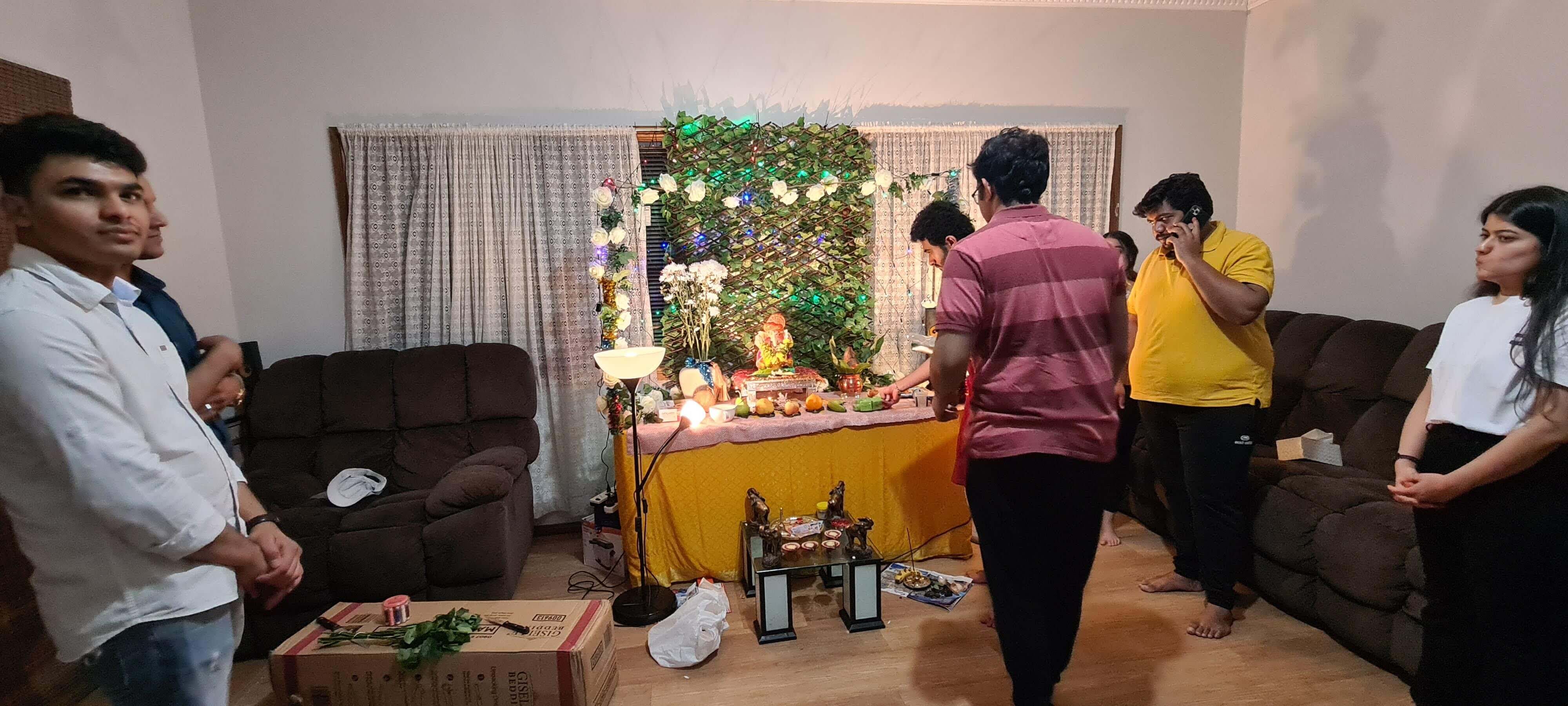
“We get asked every day about what’s going on with the Australian government. The students also share their struggles finding accommodation as it’s peak time and borders are reopening,” Mittal said. Source: Navneet Mittal
Is this the main reason for the fee hike — unis trying to recover their financial losses?
While there were fee reductions during online learning, the fees have gone up (including uni accommodation) because unis have to survive. We, at AISA, try to liaise with them and point out that international students in Australia deserve discounts.
However, at the end of the day, it’s really up to each individual institution who also depend on the government officials on how to react to the pandemic rules. The most we can do for now is put pen to paper and share all the problems students face.
This would probably lead to students dealing with a lot of stress. How does AISA help here?
Besides food, jobs, and migration, we also give mental health support. International students in Australia face a lot of stress and there’s no one to really talk to. AISA provides a platform to encourage these students to share whatever doubts, questions and thoughts they have.
For instance, if a student from India is missing home — through our programme — they can get adopted by a community member from India and go to their house for food or events. It’s the same thing for a Malaysian student or a Pakistani student.
Our aim is to take care of all the Asian international students in Australia who feel a bit left out. They are our future who come from our homelands and we want them to know that they don’t only belong to do the small jobs.
We share the necessary information they don’t teach you at school.
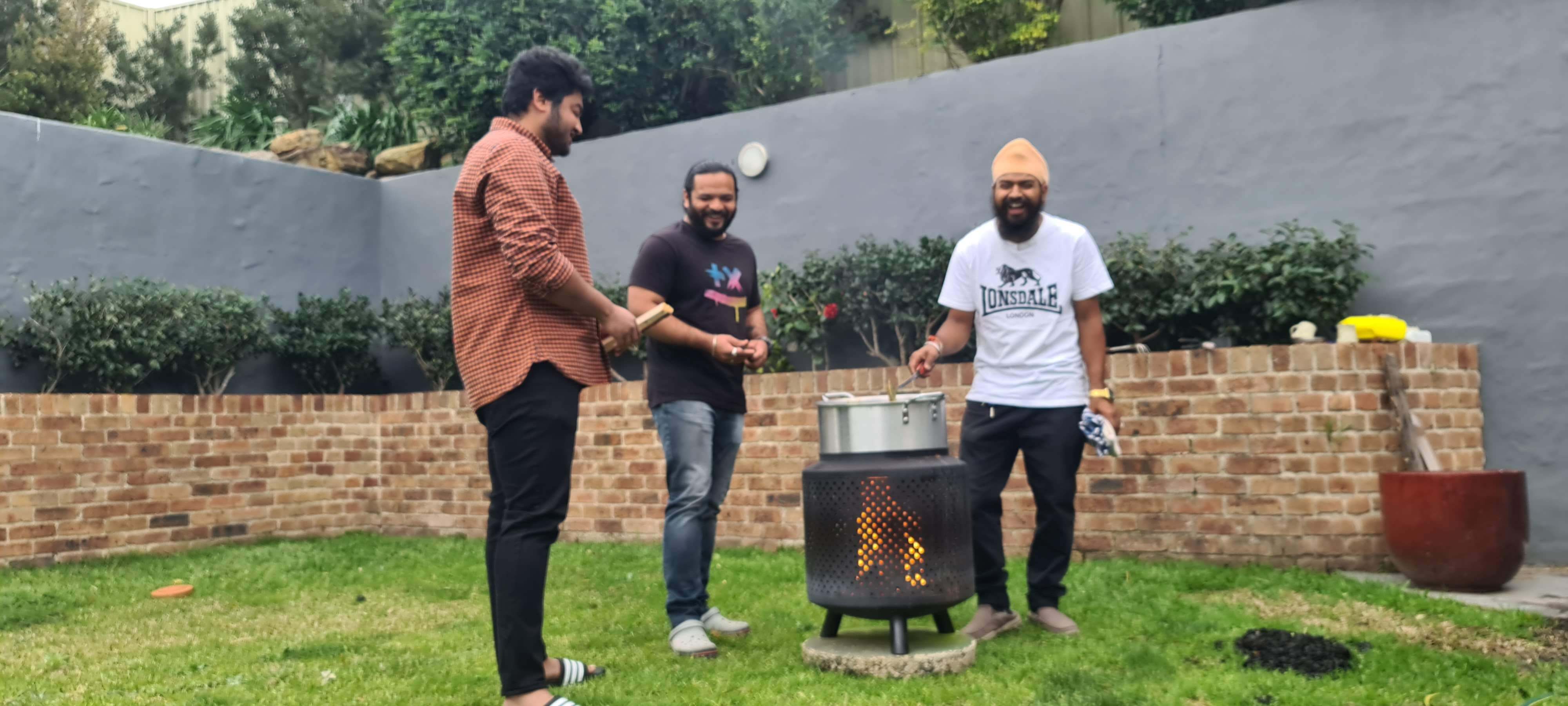
Mittal always encourages students to share any doubts they have even though they think it’s silly. Source: Navneet Mittal
What future plans do you have with AISA and international students in Australia?
We’re not quite sure what will happen in the future so we will just continue our work. Definitely, we’ll be looking into organising fundraisers since we’re at a point where we need money to fund AISA.
Since we’re self-funded, we don’t get any government support so we have to play by ear. It helps to be a travel agent — my full-time job — that I’ve done for the past 28 years.
Can you share the top three questions international students tend to ask?
They’re always asking for jobs that pay well and they also ask about what courses to do if their studies take too long as they want to finish their education faster. Another common question would be housing and where to live.
Usually, students ask about food in foreign countries but in Australia (as it’s very multicultural), you won’t have problems finding all sorts of things here. I usually recommend students not pack their suitcases heavily.
The main concerns they have are getting a job and having a place to stay. I usually chat to the students and their parents through video calls so I can reassure them that businesses will have plenty of jobs for them.
Hopefully, one day, AISA gets to a point where we can go even further and start liaising with doctors and professionals for cheaper rates and better insurance deals for them. This would also help them spend less time researching.
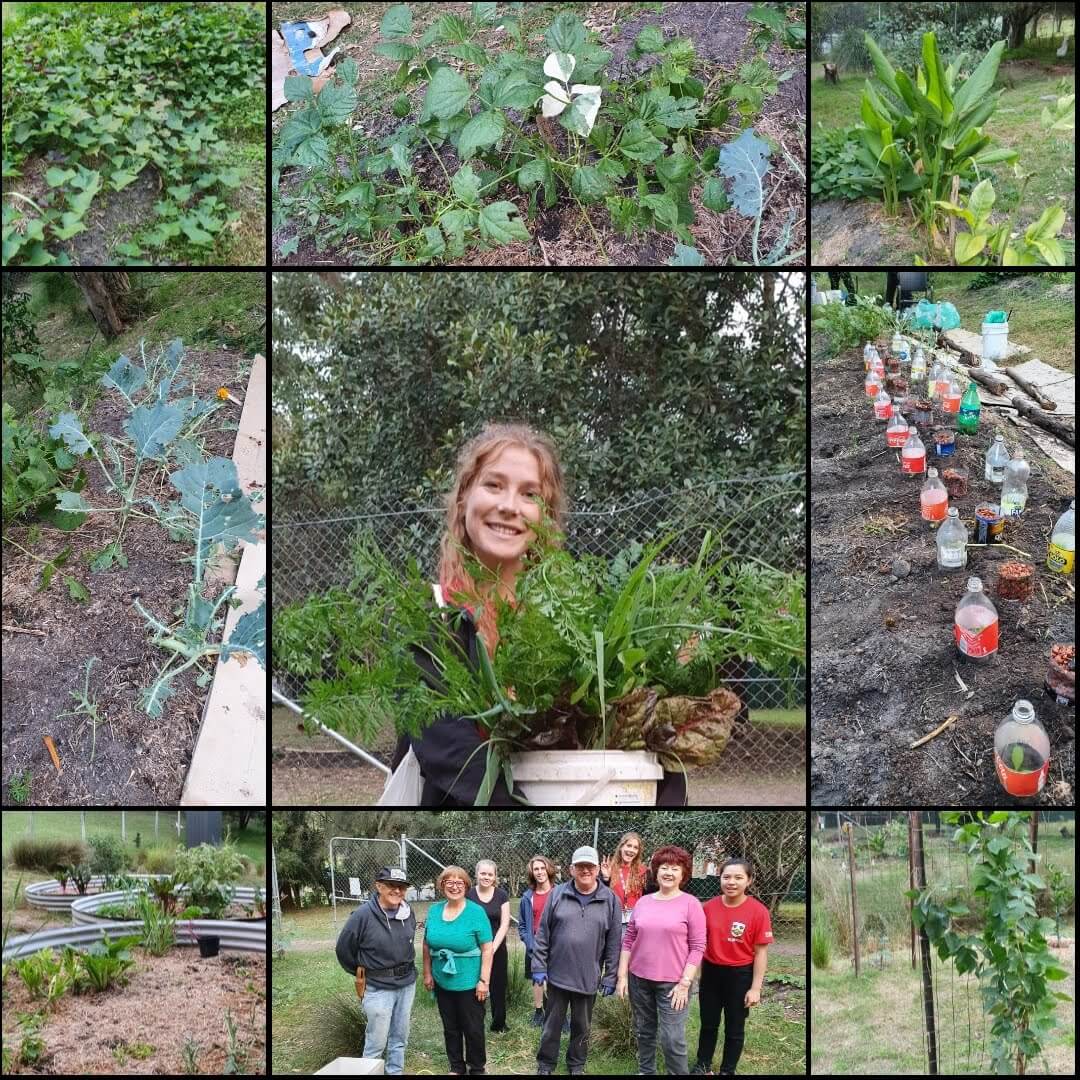
Mittal is vocal about how international students in Australia are underpaid. Source: Navneet Mittal
Has it been hard to keep up with students in different time zones?
It’s a constant non-stop network because we’ve built a first-of-a-kind community where students are actively helping each other. To answer your question, since I’m a workaholic, I answer messages sometimes at 2:00 a.m.
Any person who asks something will have some kind of anxiety and wants a response.
Do you think your role at AISA is satisfying when you get to help students settle down in Australia?
I think it was meant to be because I felt like I discovered myself. Doing community work on a large scale like this made me realise I could help motivate students and I think that’s amazing.
Last question, if you had to pick one: bread or rice?
Rice, because it’s more filling. Rice over bread any day.









